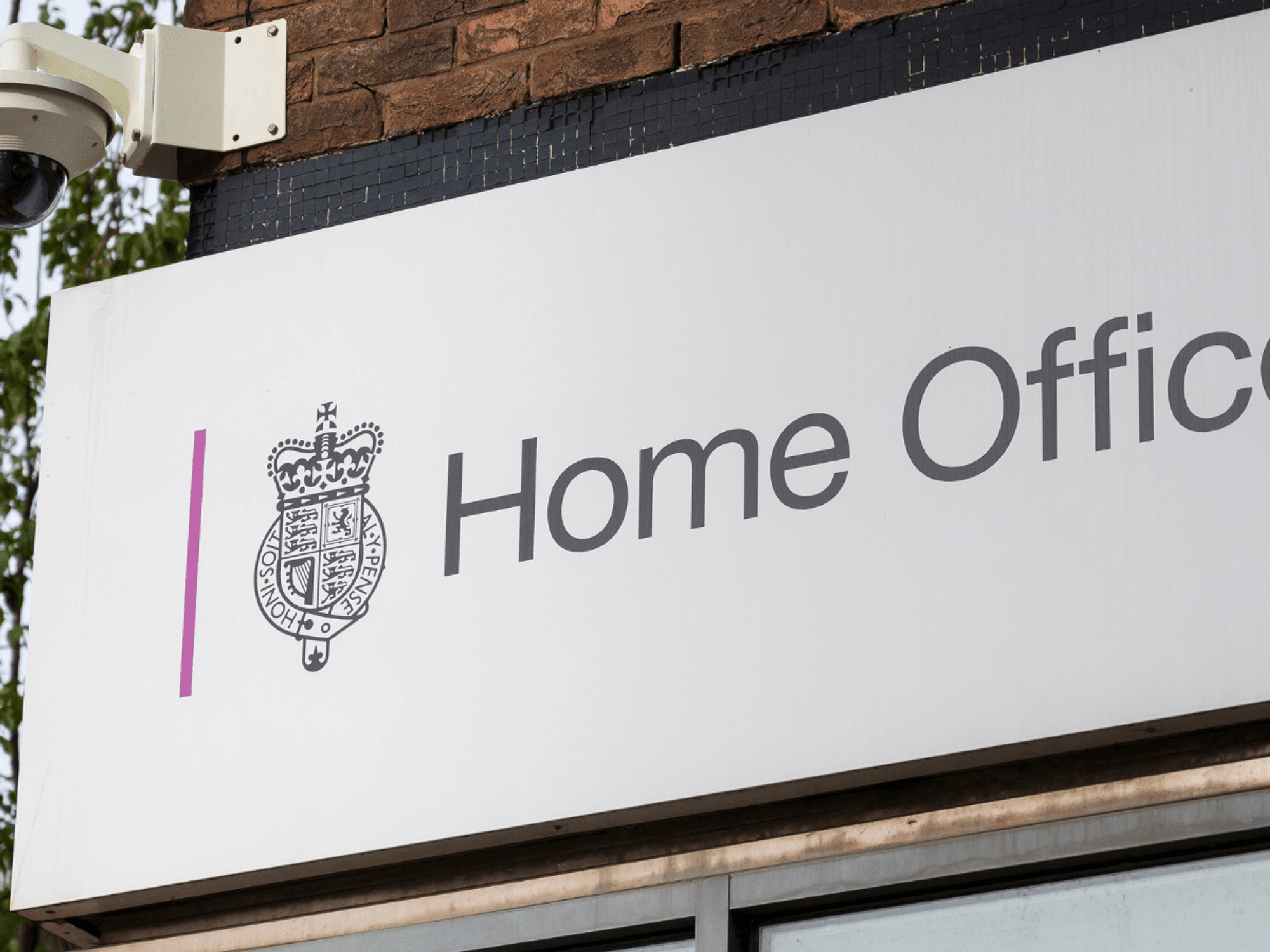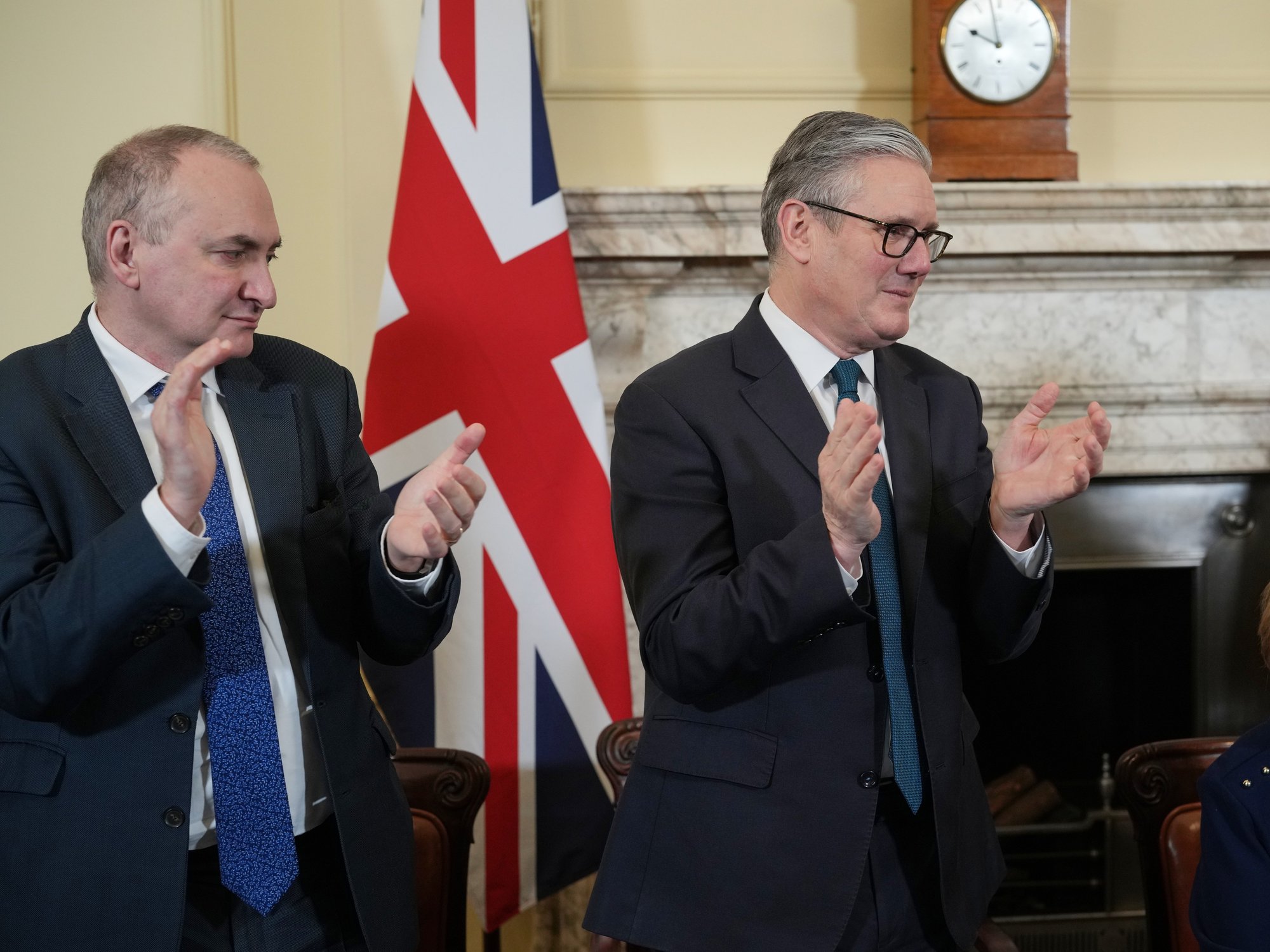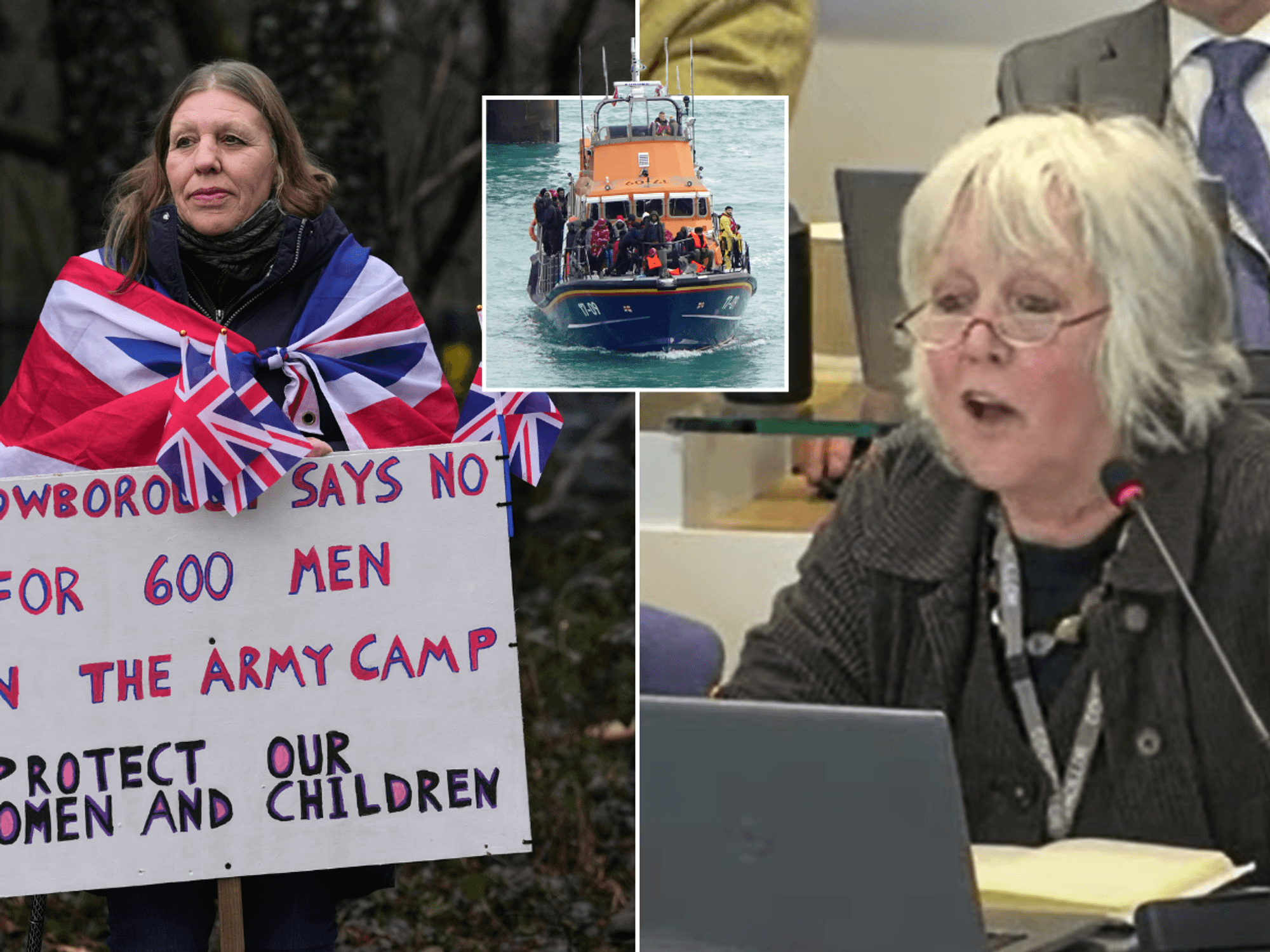EU orders Britain to OPEN its borders as Brussels's 'number one priority' revealed
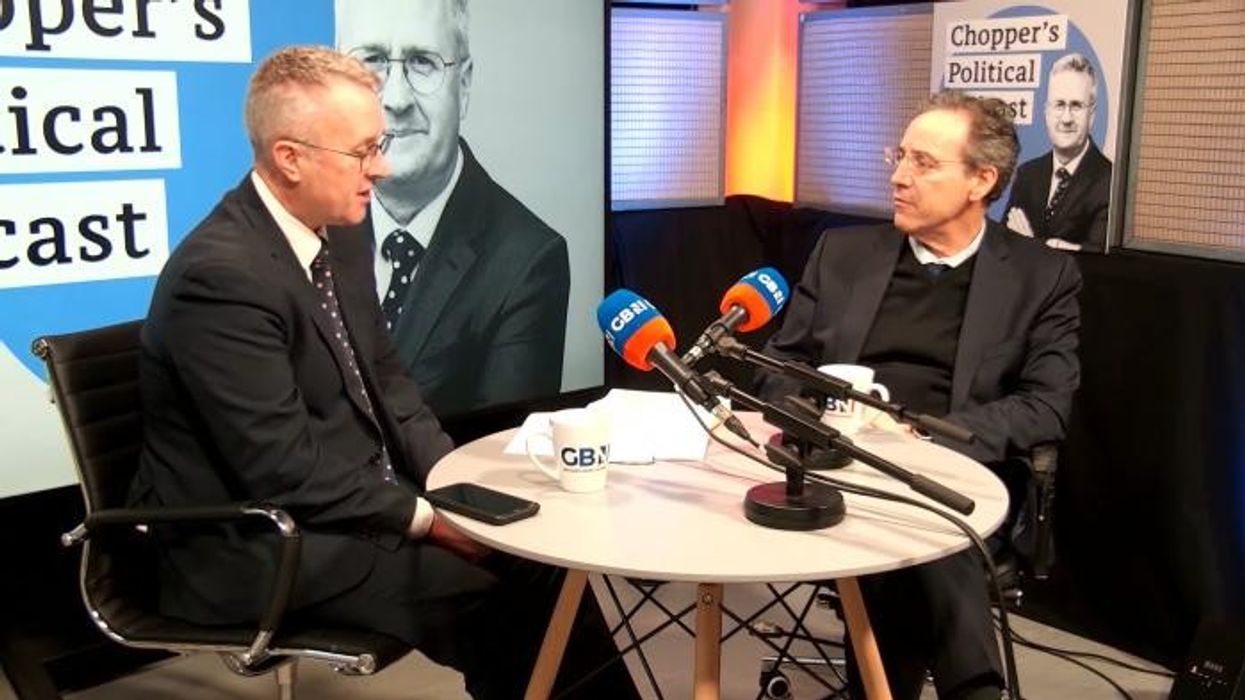
WATCH: Miguel Berger on freedom of movement for under 30s in Europe
|GB NEWS
The proposal could see Britain's doors opened to up to 70 million Europeans
Don't Miss
Most Read
Trending on GB News
The EU has told Britain that it will not sign a deal to remove red tape on food imports unless the Government says yes to freedom of movement for young Europeans.
The Prime Minister is under intense pressure to get the deal done as he attempts to entice voters back with cheaper supermarket and household goods by 2027, as pledged in Labour's election manifesto.
Pressure on a sanitary and phytosanitary (SPS) agreement with the European Union (EU) to be signed has increased after food inflation hit an 18-month high.
Labour's EU negotiator, Nick Thomas-Symonds, met with his Brussels counterpart Maros Sefovic on Wednesday morning.
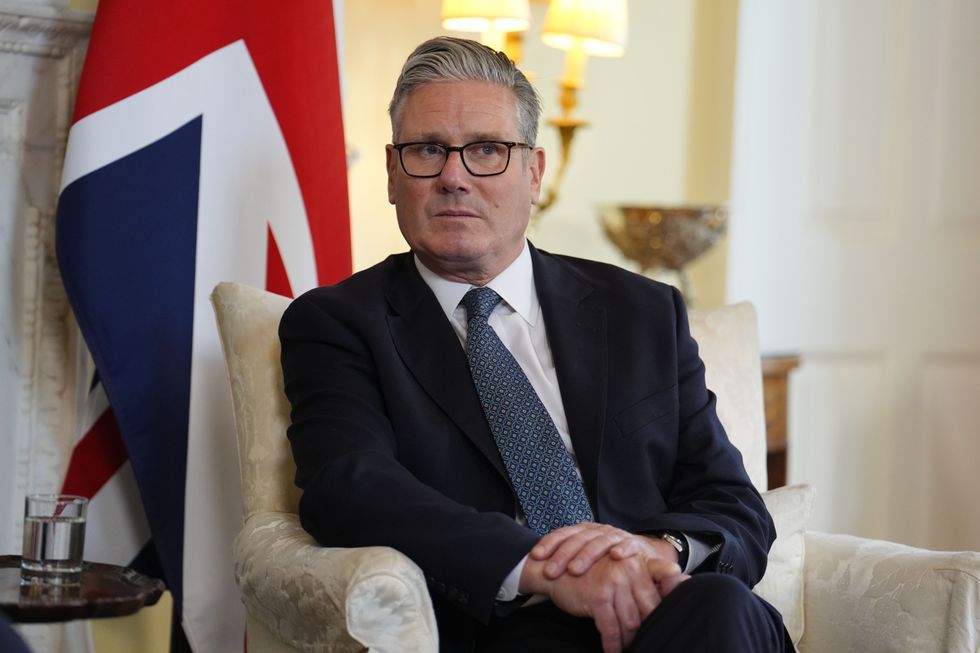
The Prime Minister is under intense pressure to get the deal done as he attempts to entice voters back with cheaper goods
|GETTY
TRENDING
Stories
Videos
Your Say
After the breakfast meeting concluded, Mr Thomas-Symonds said: “Our target for the SPS agreements, which will benefit our agri-food industries, is to have them implemented by 2027."
An agreement in principle for an SPS deal to be signed was reached in May - but the EU has said that any progress to sealing the deal hinges on a youth mobility scheme.
The proposal would grant freedom of movement for Europeans aged between 18 and 30 years old, a group of over 73 million, to live and work in Britain.
In January, German ambassador Miguel Berger told GB News that the scheme would be "an important element" of any deal reached with the Labour Government.
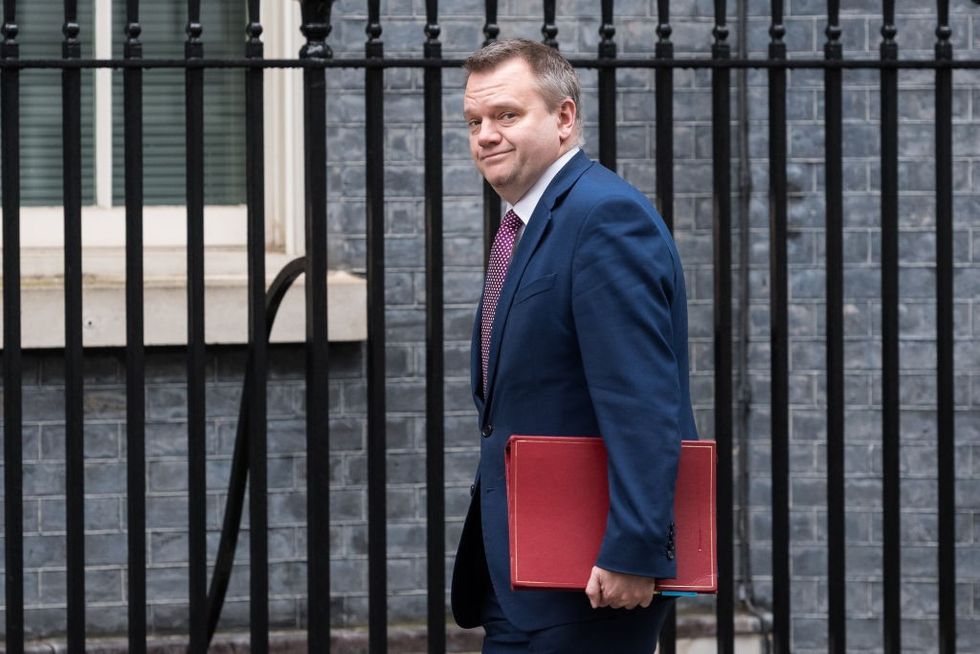
Nick Thomas-Symonds met with Brussels negotiator Maros Sefovic on Wednesday morning
| GETTYDespite previously saying that Britain had "no plans" to open up its borders to the EU, Mr Thomas-Symonds has repeatedly refused to rule it out.
It is said in the latest round of talks the Labour minister was told the scheme was Brussels's number one priority and it would not budge until it is satisfied with the number of European youngsters allowed to move to Britain.
After a particularly dry summer, Britain's agri-food industry has said it faces increased costs as a result of a poor harvest.
One European diplomat told The Times: “Doing an SPS deal is more urgent for the Brits than it is for us.
BONKERS BRUSSELS - READ MORE:
- Keir Starmer's Brexit reset deal threatens to hand EU £6bn in British fish
- UK-France migrant deal opens door to 'asylum seekers' STAYING in Britain - and EU can veto returns
- Nigel Farage sparks Brussels meltdown as EU plots 'backroom deal' to halt turquoise tidal wave
- EXPOSED: EU to impose sweeping new regulation on the WHOLE of Britain in just 24 hours
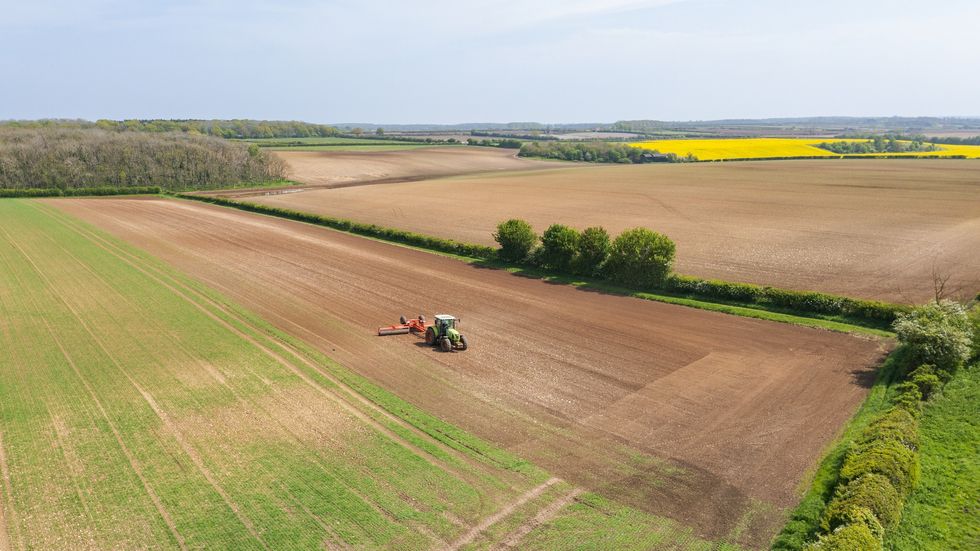
Britain's agri-food industry has said it faces increased costs as a result of a poor harvest
|GETTY
“It is not our big priority in the negotiation and if the UK wants that agreement by 2027 there will have to be movement and a deal on youth mobility.
"Numbers and the limit on numbers will be at the centre of that negotiation.”
In a speech delivered to the College of Europe, Mr Thomas-Symonds appeared to talk up the proposed scheme.
He said: “On youth mobility, we believe that giving the opportunity for young people to learn and get experience is vital… giving young people across the UK and EU a chance to study, work, live abroad - build friendships, understanding and creating opportunities."
However, it is understood that Britain will aim to reach an agreement on a version of the scheme which is more mutually beneficial in a bid to wrestle back control of the negotiations.
According to UK sources, any scheme agreed would need to have a hard cap as the Prime Minister attempts to get a grip on immigration numbers.
Last year, Mark English from European Movement UK called on Sir Keir Starmer to heed Brussels' calls for freedom of movement for its youth, saying: "It is time for a grown-up discussion, so the Government should reconsider its inexplicable hostility to a youth mobility scheme with the EU.
"After all, the UK has youth mobility schemes with 13 other countries - including Australia and Japan - so it makes sense to have one with our nearest neighbours and closest partners."
More From GB News






